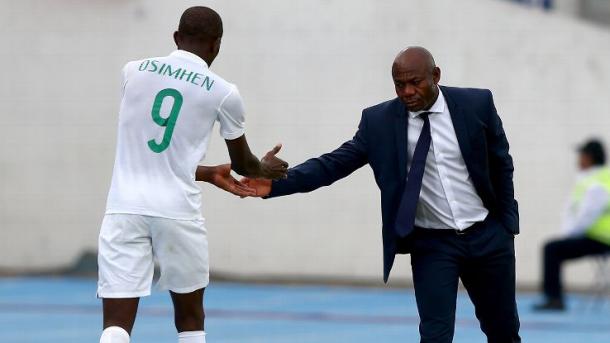Former National Sports Commission Director-General Amos Adamu faces another ban from all football-related activities after FIFA’s independent Ethics Committee confirmed on Tuesday it had opened proceedings after its ethics prosecutors requested a two-year ban on him for charges including conflict of interest.
He also faces a 20,000 Swiss franc fine ($19,445) for his actions.
Adamu, who was a FIFA executive member, was banned for three years in 2010 after he was found guilty of demanding money in exchange for World Cup votes.
However, the former Nigeria Football Federation sole administrator, whose three-year ban expired in 2013, denied the accusation. He took his case to the Court of Arbitration for Sport, which rejected his appeal.
FIFA said it had been investigating the alleged breaches of its code of ethics levelled against Adamu since March 2015.
“The adjudicatory chamber of the independent Ethics Committee, chaired by Hans-Joachim Eckert, has opened formal adjudicatory proceedings against Amos Adamu, former President of the West African Football Union and former member of the CAF and FIFA Executive Committees, based on the final report submitted by the investigatory chamber,” FIFA said in a statement on Tuesday.
“The investigations against Adamu conducted by Cornel Borbély, chairman of the investigatory chamber of the Ethics Committee, were opened on March 9, 2015 and the final report was passed to the adjudicatory chamber on December 2, 2016. In the final report, the investigatory chamber recommends a sanction of a two-year ban from all football-related activities and a fine of CHF 20,000 for violations of arts 13, 15 and 19 of the FIFA Code of Ethics.
“The adjudicatory chamber has studied the report carefully and decided to institute formal adjudicatory proceedings against Adamu.
“In the course of the proceedings, the party will be invited to submit his position including any evidence with regard to the final report of the investigatory chamber (art. 70 par. 2 of the FCE), and may request a hearing (art. 74 par. 2 of the FCE).”





